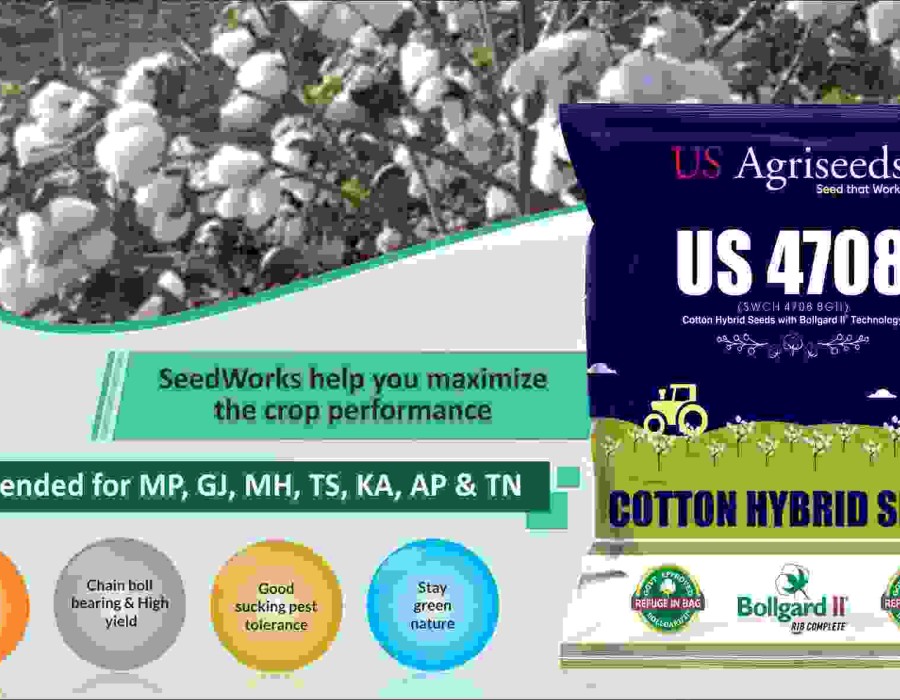Cotton is one of the most important cash crops in India, and its production plays a crucial role in the agricultural sector of the country. The seed used to cultivate this crop is fundamental to the overall quality and yield of cotton. India, being the world's largest producer of cotton, has numerous cotton seed manufacturers who provide seeds to farmers across the nation and beyond. However, the competition among cotton seed companies in India to supply high-quality and innovative products is intense. This article explores the quality, innovation, and global comparison of Indian cotton seed manufacturers.
The Importance of Cotton Seed Quality
The quality of cotton seeds directly influences the yield and quality of the cotton crop. High-quality seeds ensure better germination, resistance to diseases, and enhanced growth, leading to higher returns for farmers. Cotton seed manufacturers in India focus on breeding seeds with improved traits such as pest resistance, drought tolerance, and better fiber quality. These innovations are essential not just for meeting local demand, but also for international markets, where demand for premium cotton remains high.
Advances in Cotton Seed Research and Development
Indian cotton seed manufacturers have been investing heavily in research and development (R&D) to produce high-yielding varieties. These innovations focus on developing genetically modified (GM) seeds, hybrid seeds, and traditional varieties with better resilience. The development of Bt cotton, which is genetically engineered to resist pests, is one of the most notable advancements in the cotton seed industry. The focus on R&D helps Indian manufacturers meet both local and global demands for high-quality cotton and ensures better sustainability in cotton farming.
Cotton Seed Companies in India: A Competitive Landscape
India boasts a large number of cotton seed manufacturers, and each one strives to maintain its edge by offering better seed quality and innovative solutions. These companies provide a range of seed varieties, including conventional, hybrid, and GM cotton seeds. The competition is not just limited to domestic markets but also extends to global markets. Cotton seed manufacturers in India are expanding their reach and looking for new export opportunities, especially in regions like Africa and Southeast Asia, where cotton farming is prominent.
Global Comparison: Indian Cotton Seed Manufacturers vs. Global Competitors
On the global stage, cotton seeds company in India face competition from producers in countries like the United States, China, and Brazil. However, Indian manufacturers are uniquely positioned due to the country's vast experience in cotton farming and the ability to adapt to local climatic conditions. While countries like the U.S. and China have large-scale operations, India’s cotton seed companies focus more on local adaptation and improving seed performance under diverse weather conditions. Furthermore, the cost-effectiveness of Indian cotton seeds gives them a competitive advantage in international markets.
Sustainability and Environmental Considerations
Sustainability has become a key focus for cotton seed manufacturers worldwide, and Indian companies are no exception. The need for eco-friendly agricultural practices has prompted Indian manufacturers to develop seeds that require fewer chemical inputs, such as pesticides and fertilizers. Additionally, many cotton seed companies in India are focusing on water-use efficiency, which is vital in regions suffering from water scarcity. Innovations like drought-resistant seeds are helping farmers reduce their dependence on irrigation, thus contributing to sustainable farming practices.
Technological Innovation in Seed Processing
The cotton seed processing technology has evolved significantly over the years, with manufacturers investing in state-of-the-art facilities to ensure the highest quality seeds. Seed processing involves cleaning, grading, and treating seeds to make them ready for planting. Cotton seed companies in India are increasingly adopting advanced machinery and technologies that enhance the quality and purity of seeds. This ensures better germination rates and reduces the likelihood of diseases. The continuous improvement of seed processing technology has been one of the major factors behind the rise in seed quality.
Focus on Farmer Support and Education
One of the unique aspects of Indian cotton seed manufacturers is their emphasis on providing support to farmers. Many manufacturers run programs to educate farmers on best practices for seed selection, planting techniques, pest management, and sustainable farming methods. This focus on farmer education helps increase the adoption of advanced seed varieties and results in better crop yields. With the growing demand for high-quality cotton, these educational initiatives also ensure that Indian farmers remain competitive on a global scale.
Challenges Faced by Cotton Seed Manufacturers in India
Despite the strides in quality and innovation, Indian cotton seed manufacturers face several challenges. These include issues related to the regulatory environment, access to quality inputs, and the complex market dynamics in different regions. Additionally, there is ongoing concern about the potential for seed piracy, where counterfeit or inferior-quality seeds are sold to farmers, undermining the efforts of legitimate manufacturers. To address these challenges, manufacturers must continue to innovate and work closely with government agencies and farmers to ensure the integrity of the seed supply chain.
Conclusion
The cotton seed industry in India is a dynamic and evolving sector that plays a crucial role in both the country's economy and the global cotton trade. Indian cotton seed manufacturers have made significant progress in terms of seed quality, innovation, and research. Their focus on developing pest-resistant, drought-tolerant, and high-yielding seed varieties has placed them in a competitive position globally. With the continued emphasis on sustainability, technological advancements, and farmer support, Indian manufacturers are well-poised to meet both local and international demands for quality cotton. The challenges they face, however, require ongoing adaptation and investment in both R&D and farmer education to maintain their position as global leaders in cotton seed production.






Comments